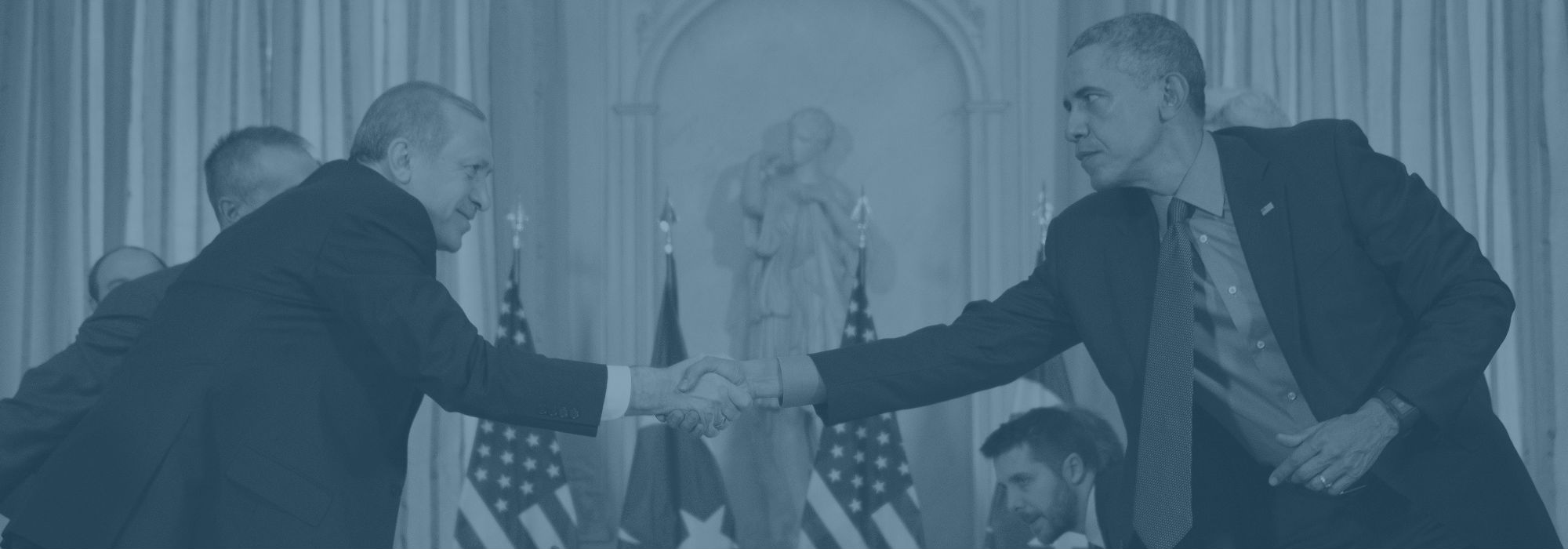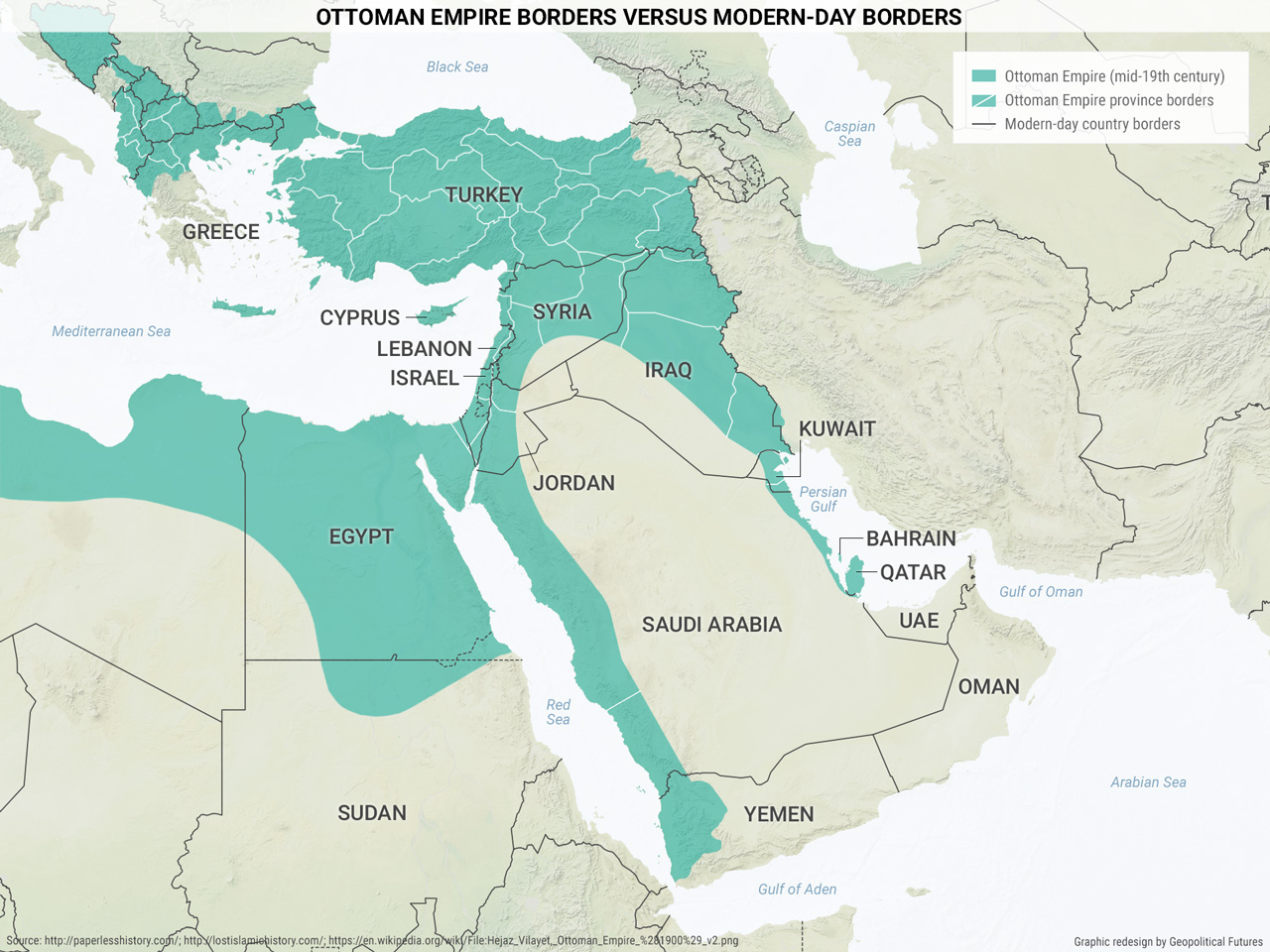By George Friedman
Enough time has passed since the attempted coup to begin to take stock of the situation. President Recep Tayyip Erdoğan has clearly emerged from the coup in a stronger position than before. The coup, rather than fragmenting the country, has brought it a greater degree of unity, outside the Kurdish area, than has been seen before.
Erdoğan is restructuring Turkish institutions, from the military to schools to the media, in ways that will support whatever moves he chooses to make. His long-term intentions – the ends toward which he is restructuring Turkish institutions – are unclear. The restructuring, arrests and firings will make him enormously powerful, but the important question is what he intends to do with that power.
Let me begin with a point I have made many times over the years. There are four significant powers in the region, each with the ability to defend themselves and project some degree of power. They are Saudi Arabia, Iran, Israel and Turkey. Of the four, only Turkey has the size, economic power and political influence to shape the region. On the surface, Israel is the strongest power, but its size limits its power projection to its near neighbors. It has political influence, but that is limited by the fact that it is a Jewish state. Saudi Arabia’s primary source of power is money, but the decline in the price of oil has undercut that influence, while its military, as we have seen in Yemen, has not evolved sufficiently in its effectiveness. Iran is limited by geography. Its ability to project and sustain large-scale military forces west of the Zagros Mountains is limited. It is compelled to channel its power through proxies of limited strength.
Turkey alone has the mixture of economic, political and military power to become the major regional power. For over half a millennium, save for the period after World War I, Turkey has been the dominant regional power. Today, it has the largest economy and military in the region and, therefore, ought to have the greatest influence.
However, while its economy has grown dramatically since Erdoğan’s Justice and Development Party took power, it has now slowed and must evolve. The army may be the largest in the Middle East, but much of its size comes from draftees on short-term duty who are effectively untrained. Its equipment has not evolved since the Cold War, and much of its military doctrine is still evolving. It is not clear that Turkey’s other institutions, like its foreign service or intelligence services, are in positions to support a great power. And both domestic and regional politics have limited Turkey’s options.
So Turkey has avoided overextending itself, aware that defeat is possible and would derail Turkish evolution. One policy, more wishful thinking than reality, was to have no enemies. Turkey has moved to a policy of limited engagement along its frontier and increasing openness to more distant powers such as Israel and Russia. It is a policy of subtlety, shifting from hostility to neutrality to limited cooperation and back again as circumstances dictate. Turkey has been cautiously defensive.
The coup permits Erdoğan to reshape Turkey’s institutions in a way that was not possible before the coup. Before the coup, Erdoğan faced substantial opposition. The coup gave him an opportunity to restructure the military, intelligence and other institutions to give Turkey more room to maneuver in the region. Failed coups, when they are thoroughly crushed and discredited, dramatically increase the power of their victims. Erdoğan appears to be ready to take advantage of that.
From this coup, the limitations that have kept Turkey from its full potential in the region will begin to disappear. At the moment, Turkey faces massive chaos to its south, a degree of instability in the Caucasus and emerging U.S.-Russian competition in the Black Sea. Russian influence in the Balkans is rising, particularly in Serbia. The region is fraught with instability and Turkey has not been able to stop it. The restructuring opens the door for Turkey to become much more assertive in the region.
In recent years, Turkey’s policy has been tactical. It has moved from threat to threat and from opportunity to opportunity without a broad strategy, besides avoiding excessive exposure to threats. In the current environment, the general approach of accommodation is becoming less and less tenable. The unpredictability of the situation in the south coupled with potential threats from every direction are forcing it to consider increasing its control of the situation. In this context, a tactical policy must be replaced by a national strategy.
Turkey now has three options. The first is to attempt to manage its interests by itself. The second, is to attempt to ally with Russia for joint management in the region. The third is to return to its prior alliance with the United States.
It is always attractive to be self-reliant. However, Turkey has only just started the process of institutional reconstruction. At minimum, this process will take a decade before a fully self-reliant policy – other than hoping for the best – can be achieved. And even after that point, regional military powers have global economic interests. This asymmetry creates dependencies that are outside of their control. Turkey will need to have allies even as it becomes regionally powerful.
An alliance with Russia makes sense. The ideal strategy is that the two weaker powers collaborate to block the stronger power. After the Vietnam War, the United States allied with China to block the Soviets. The danger in this strategy is that one of the allied powers might be weaker than the other, or that either might suddenly switch alliances. The Russians clearly need Turkey to counterbalance the United States, and Turkey could use Russia for the same end. But if Russia were to weaken due to economic problems, or come to an agreement with the United States over Ukraine, Turkey might find itself alone.
The problem with an alliance with the United States is that the imbalance of power leaves Turkey vulnerable to shifts in American policy. The United States could undertake strategies that are not in Turkey’s interest and force Turkey to support them and commit resources to an extent that is irrational for Turkey. Russia has a policy in Syria that Turkey opposes. The United States has a policy that is far less clear. The United States is more dangerous than Russia in this case, as Russia’s actions can be predicted. For Turkey, the United States possesses the worst attribute an ally can have: unpredictability.
There is another element in this calculation. Russia is near. The United States is far away. Russia is a competitor in the region. The United States has a much lower stake in the region than Russia and is, therefore, in spite of all the drawbacks for Turkey, a safer choice. In the past century, Turkey has had a Russian option. It has always declined the option because proximity raised the stakes too high. The United States is less predictable precisely because it has less at stake.
In making this choice, there is also the question of whether the United States was behind the coup. I am not in a position to know and all things are possible, but I tend not to believe that for a simple reason. The United States is trying to extricate itself from the region by allowing regional powers to manage it.
Weakening Turkey would run counter to American interests. If we assume that the CIA is as brilliant as Turks like to believe, then the CIA would have known that the planned coup was being run by incompetents and that the only outcome if the coup succeeded would be chaos in Turkey. The U.S. wants to withdraw from the region and that is impossible unless Turkey is strong. A chaotic Turkey is the last thing the U.S. would have wanted. U.S. sponsorship of a coup would have been unlikely for geopolitical reasons, and also because it would have been an unnecessary risk. In my view, Erdoğan’s victory was in the American interest far more than the alternatives.
Turkey is now making the transition that I forecast years ago from a secondary power to a major regional power. That has placed extreme stress on the Turkish political system, generating a coup that Erdoğan came out of stronger than ever. I also predicted that decades down the road this might lead to conflict. But at this point the fundamental geopolitical reality is that for the foundations of Turkish foreign policy, a relationship with the United States is more rational than one with Russia or trying to operate alone. A foreign policy is designed from the options that are available. Turkey’s power is increasing but has not yet reached the point at which it can invent new options. There will be extreme stress on both sides but in the end, I think the Turkish-American alliance will re-emerge.







 Special Collection – The Middle East
Special Collection – The Middle East